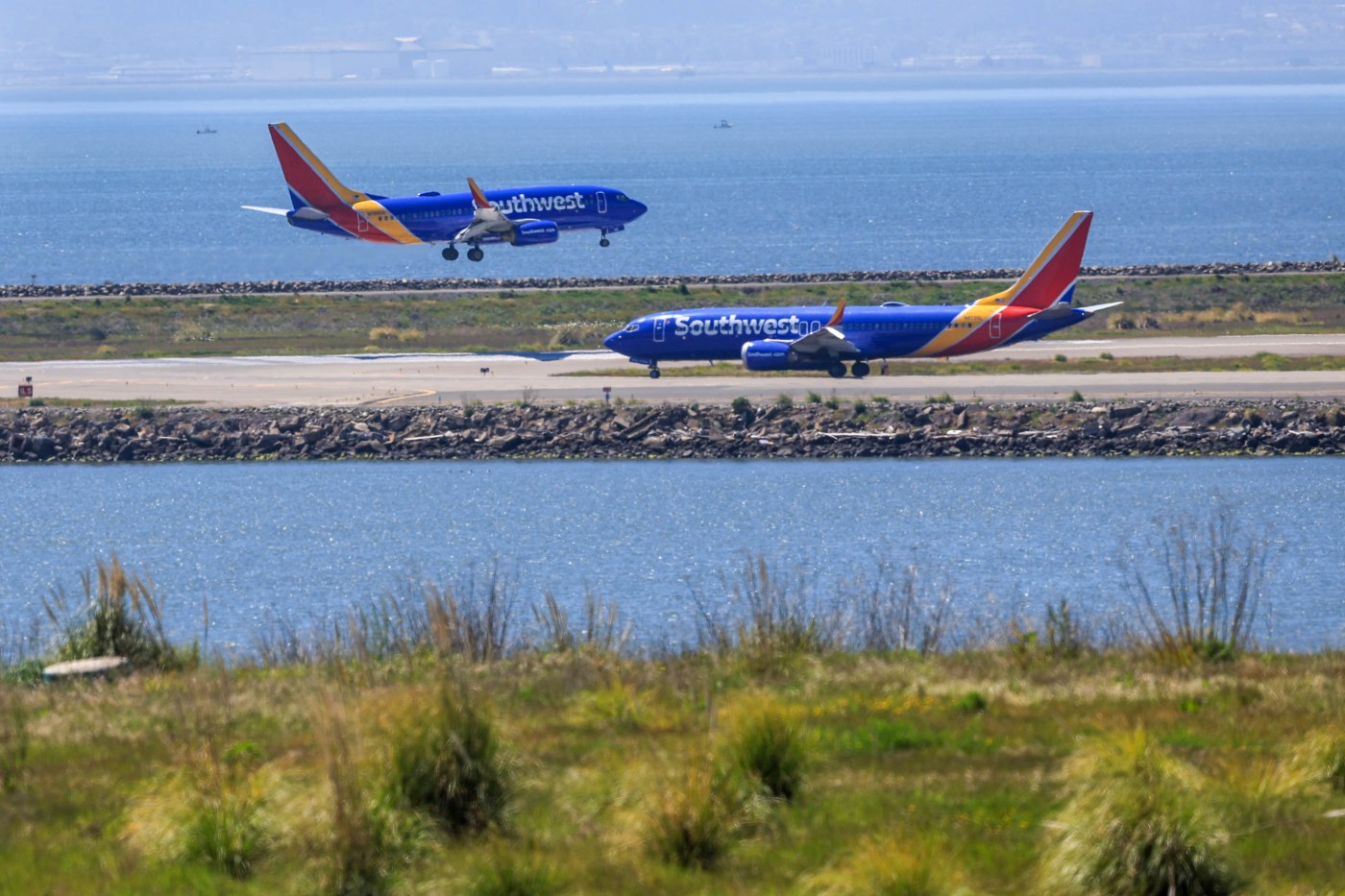
Opinion: Fewer SJC, OAK passengers is good for climate change fight; Oakland expansion plan is not
The Port of Oakland in November approved an environmental impact report for a plan to expand the number of gates at Oakland International Airport by 55%.
Then, in December, Bay Area News Group reported a downturn in annual airport passenger activity by 2.3% for San Jose and 1.8% for Oakland.
The reporter bemoaned this as an economic setback. For the sake of all our children and grandchildren, I applaud this reduction. Why? Because climate scientists report a sustained reduction in global air traffic by just 2.5% per year could have a huge impact on the future of our planet.
It would immediately halt commercial aviation’s substantial contribution to further global warming. And it’s why Oakland port officials should abandon the expansion plans for the airport they operate.
Global warming is an accelerating catastrophe happening right before our eyes. The National Oceanic and Atmospheric Administration recently reported that between 1980 and 2024, there were 66 tropical cyclones, 203 severe storms, 23 wildfires, 24 winter storms, 44 floods, 31 droughts and nine freeze-disaster events in the United States that each resulted in economic losses of $1 billion or more, as measured in today’s dollars.
All these disasters were deemed by NOAA to be effects of global warming. And the number of these events occurring yearly dramatically increased after 2010. The yearly average was three disaster events in the 1980s, six in the 1990s, seven in the 2000s, 13 in the 2010s and 22 so far in the 2020s.
Climate scientists agree that we will reach a tipping point once Earth’s average surface temperature becomes 2 degrees Celsius (3.6 degrees Fahrenheit) higher than the average recorded between 1850 and 1900. When the tipping point is reached, they predict, the acceleration of climate catastrophes we are now observing will become irreversible. Earth’s current average surface temperature is already 1.5 C above the 1850-1900 average and approaching the critical 2 C threshold faster than climate scientists had expected.
Why is this happening? Because increased concentrations of specific gases in the atmosphere that come from fossil fuel combustion cause more heat to be reflected by the atmosphere back to Earth and less to escape into outer space. Carbon dioxide (CO2), nitrogen oxides and tiny particles of soot released in jets’ exhaust are prominent bad actors. Commercial airlines burned 92 billion gallons of jet fuel in 2023 and are on track to burn 99 billion in 2024.
How could a sustained air traffic reduction of only 2.5% per year halt aviation’s contribution to further global warming? At the high altitude that jets fly, the CO2 and non-CO2 components of its exhaust have comparable impacts on global warming. However, the effects of CO2 emitted at that altitude last for millennia, while the effects of non-CO2 components only last days to decades at most.
Related Articles
Gongloff: Carbon-capture promises require unrealistic land grabs
Letters: Santa Cruz wharf ocean fury demands we act now on climate
Fluorescent-colored sand could show effects of ocean currents on California’s eroding beaches
Wish Book: School children harvest lessons on nutrition, environment and science by spending time on the farm
Fires, deforestation and drought hammered the Amazon in 2024
Thus, the beneficial impact of reduced air traffic is immediate. If air traffic continues to grow by 3% per year, aviation alone will account for 10% of the additional greenhouse gas emissions it would take for Earth to reach the 2.0 C point of no return. If air traffic drops by just 2.5% a year, aviation alone won’t add any more to further global warming.
Yet, despite the recent reduction in Oakland airport passenger activity, the port wants to add 16 additional gates to achieve a 55% increase in air traffic. Fortunately, two local community groups, Communities for a Better Environment and Stop OAK Expansion Coalition, have filed lawsuits to block this expansion. It’s simply common sense that, for the well-being of our children and grandchildren, air traffic in and out of the Oakland airport should decrease and certainly must not be allowed to increase.
Dr. Mark A. Jacobson is an emeritus professor of medicine at UC San Francisco and a member of the Stop OAK Expansion Coalition steering committee.


